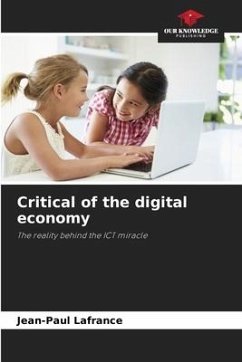The personal data naively offered by users is the "war chest" of Web 2.0 companies and constitutes the main resource of the digital economy thanks to data mining techniques. Moreover, given the intangible nature of this data, which travels freely from one border to another, digital companies are capable of tax evasion because of the ease with which they can hide their operations in tax havens. Moreover, no matter how large the Big Five companies are, they are always at the mercy of competitors, either through their inventive R&D or through the acquisition of dynamic new start-ups that can propel them forward. Digital technology is enabling a shift from a manufacturing economy to a service economy. Service companies are now emerging that use digital distribution platforms, such as UBER or AIRBNB. How can we fight against the conversion of workers into precarious self-employed workers and the galloping suppression of well-paid jobs? The state must introduce a guaranteed minimum income.
Bitte wählen Sie Ihr Anliegen aus.
Rechnungen
Retourenschein anfordern
Bestellstatus
Storno








